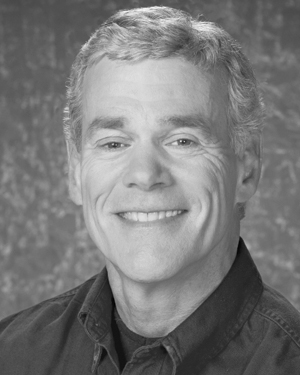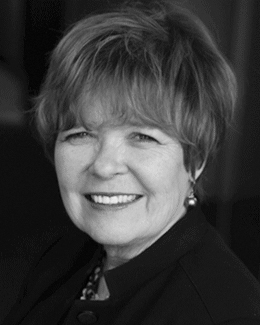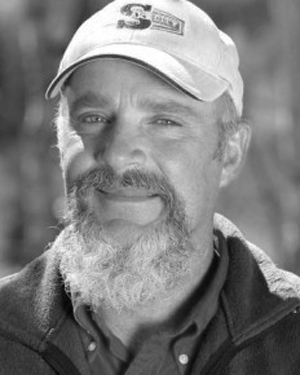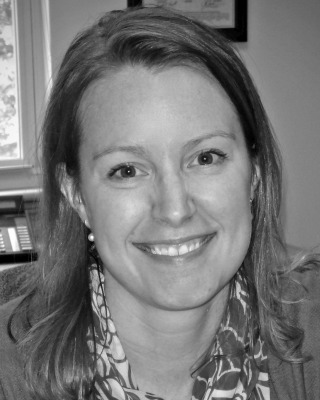|
Behavior Change for a Sustainable World |
| Saturday, August 4, 2012 |
| 8:30 AM–9:30 AM |
| US Bank Conference Theater |
| Area: CSE; Domain: Applied Research |
| Instruction Level: Basic |
| CE Instructor: William L. Heward, Ph.D. |
| Chair: Richard W. Malott (Western Michigan University) |
| WILLIAM L. HEWARD (The Ohio State University) |
 William L. Heward, Ed.D., BCBA, is professor emeritus in the College of Education and Human Ecology at The Ohio State University (OSU) where he helped train special education teachers for 30 years. Dr. Heward was as a senior Fulbright scholar in Portugal, a visiting scholar at the National Institute of Education in Singapore, a visiting professor of psychology at Keio University in Tokyo and the University of Sao Paulo, Brazil, and has given lectures and workshops in 14 other countries. His publications include more than 100 journal articles and book chapters and nine books, including Exceptional Children: An Introduction to Special Education, Tenth Edition (2013), and Applied Behavior Analysis, Second Edition (2007, co-authored with his OSU colleagues John Cooper and Tim Heron), which have been translated into several foreign languages. Awards recognizing Dr. Heward's contributions to education and behavior analysis include the Fred S. Keller Behavioral Education Award from the American Psychological Association's Division 25, the Distinguished Psychology Department Alumnus Award from Western Michigan University, and the Ellen P. Reese Award for Communication of Behavioral Concepts from the Cambridge Center for Behavioral Studies. A fellow and past president of the Association for Behavior Analysis International, Dr. Heward's research interests include "low-tech" methods for increasing the effectiveness of group instruction and adaptations of curriculum and instruction that promote the generalization and maintenance of newly learned knowledge and skills. William L. Heward, Ed.D., BCBA, is professor emeritus in the College of Education and Human Ecology at The Ohio State University (OSU) where he helped train special education teachers for 30 years. Dr. Heward was as a senior Fulbright scholar in Portugal, a visiting scholar at the National Institute of Education in Singapore, a visiting professor of psychology at Keio University in Tokyo and the University of Sao Paulo, Brazil, and has given lectures and workshops in 14 other countries. His publications include more than 100 journal articles and book chapters and nine books, including Exceptional Children: An Introduction to Special Education, Tenth Edition (2013), and Applied Behavior Analysis, Second Edition (2007, co-authored with his OSU colleagues John Cooper and Tim Heron), which have been translated into several foreign languages. Awards recognizing Dr. Heward's contributions to education and behavior analysis include the Fred S. Keller Behavioral Education Award from the American Psychological Association's Division 25, the Distinguished Psychology Department Alumnus Award from Western Michigan University, and the Ellen P. Reese Award for Communication of Behavioral Concepts from the Cambridge Center for Behavioral Studies. A fellow and past president of the Association for Behavior Analysis International, Dr. Heward's research interests include "low-tech" methods for increasing the effectiveness of group instruction and adaptations of curriculum and instruction that promote the generalization and maintenance of newly learned knowledge and skills.
|
| Abstract: For decades earth scientists have issued fact-filled warnings about our planet’s declining health and its diminishing ability to sustain human activity. Human behavior is responsible for both of these problems, and changing our behavior is the only solution. While behavior analysis has made important contributions to other spheres—improving education, helping people adopt healthier life styles, making highways and factories safer, caring for people exhibiting challenging and life-threatening disorders—it has paid far too little attention to the impact of human behavior on the only home we have. But this is changing. I will identify and offer examples of why behavior analysts are uniquely poised to contribute to a broad range of interventions to promote the husbandry of our planet's resources, restore damaged eco-systems, and help prepare us to cope with the inevitable challenges to come. |
| Target Audience: BACB-certified behavior analysts and licensed psychologists. |
| Learning Objectives: At the conclusion of this session, participants should be able to:
1 Describe key characteristics of behavior analysis that distinguish it from traditional approaches to behavior change.
2. Identify applications of behavior principles to promote environmentally friendly behavior.
3. Describe opportunities for behavior analysts to help develop and evaluate programs that effectively promote sustainable practices. |
|
| |
| |
|
Helping People Go Green With Applied Behavior Analysis |
| Saturday, August 4, 2012 |
| 9:30 AM–10:30 AM |
| US Bank Conference Theater |
| Area: CSE; Domain: Service Delivery |
| Instruction Level: Intermediate |
| CE Instructor: E. Scott Geller, Ph.D. |
| Chair: William L. Heward (The Ohio State University) |
| E. SCOTT GELLER (Virginia Polytechnic Institute and State University) |
 Scott Geller, Ph.D., is an alumni distinguished professor at Virginia Tech, Blacksburg, VA, and director of the Center for Applied Behavior Systems in the Department of Psychology. He is also senior partner of Safety Performance Solutions, a leading-edge training and consulting firm targeting occupational health, safety, and sustainability. In 2009, the American Psychological Foundation honored Dr. Geller with the Gold Medal Award for Lifetime Achievement in Psychology for the Public Interest. For a decade after the first Earth Day in 1970, Dr. Geller and his students conducted numerous field studies to demonstrate the social validity of applying behavior analysis to increase environmentally friendly behavior (EFB) in organizations and throughout communities. This research was summarized in the book, Preserving the Environment: New Strategies for Behavior Change (Geller, Winett, & Everett, 1982, Pergamon Press). Unfortunately, few of the interventions revealed in this book to increase EFBs have been implemented. Dr. Geller's presentation will activate a reconsideration of how applied behavior analysis can contribute significantly to sustainability. Scott Geller, Ph.D., is an alumni distinguished professor at Virginia Tech, Blacksburg, VA, and director of the Center for Applied Behavior Systems in the Department of Psychology. He is also senior partner of Safety Performance Solutions, a leading-edge training and consulting firm targeting occupational health, safety, and sustainability. In 2009, the American Psychological Foundation honored Dr. Geller with the Gold Medal Award for Lifetime Achievement in Psychology for the Public Interest. For a decade after the first Earth Day in 1970, Dr. Geller and his students conducted numerous field studies to demonstrate the social validity of applying behavior analysis to increase environmentally friendly behavior (EFB) in organizations and throughout communities. This research was summarized in the book, Preserving the Environment: New Strategies for Behavior Change (Geller, Winett, & Everett, 1982, Pergamon Press). Unfortunately, few of the interventions revealed in this book to increase EFBs have been implemented. Dr. Geller's presentation will activate a reconsideration of how applied behavior analysis can contribute significantly to sustainability. |
| Abstract: In the 1970s, applied behavior analysts demonstrated a number of practical and effective ways to increase environmentally friendly behavior (EFB). Despite their success, these interventions have not been implemented on a large scale. Why not? Dr. E. Scott Geller will address this critical question by reviewing early applications of behavioral science aimed at increasing EFB and by sharing lessons learned from his 40 years of behavior-based intervention in organizations and communities. These lessons indicate hurdles to overcome to achieve large-scale impact on sustainability. The need for self-motivated "actively caring" will be addressed, as well as how a paradigm shift to humanistic behaviorism can increase actively caring for the environment throughout families, organizations, and communities worldwide. |
| Target Audience: BACB-certified behavior analysts and licensed psychologists. |
Learning Objectives: At the conclusion of this session, participants should be able to:
- Describe published application of behavior analysis to protect the environment, beginning in the 1970’s.
- Explain the limitations of published applications of behavior analysis to protect the environment.
- Suggest ways to increase the large-scale impact of applications of behavior analysis to protect the environment.
- Explain how to determine if an individual feels empowered and self-motivated to apply an intervention for sustainability.
- List practical ways to address the dissemination challenge of applying behavior analysis for sustainability.
|
|
| |
| |
|
Show Me The Money (It's Green, You Know) |
| Saturday, August 4, 2012 |
| 11:00 AM–12:00 PM |
| US Bank Conference Theater |
| Area: CSE; Domain: Theory |
| Instruction Level: Intermediate |
| CE Instructor: Darnell Lattal, Ph.D. |
| Chair: Mark P. Alavosius (University of Nevada, Reno) |
| DARNELL LATTAL (Aubrey Daniels International) |
 Darnell Lattal is president and chief executive officer of Aubrey Daniels International. She is a specialist in the design and implementation of behavioral-based business strategies to achieve core initiatives. She has worked in a variety of settings on organizational redesign and change management, executive coaching, achieving high performance, performance measurement and systems design, leadership and teamwork within and across organizational structures, succession planning, ethical decision-making, and creating a solid leadership legacy based on self-awareness and self-management. Dr. Lattal is particularly effective in coaching individuals from executives to line employees to make improvements in personal style and performance execution. She has special expertise in the psychology of learning, designing sustainable and rapid change. Darnell Lattal is president and chief executive officer of Aubrey Daniels International. She is a specialist in the design and implementation of behavioral-based business strategies to achieve core initiatives. She has worked in a variety of settings on organizational redesign and change management, executive coaching, achieving high performance, performance measurement and systems design, leadership and teamwork within and across organizational structures, succession planning, ethical decision-making, and creating a solid leadership legacy based on self-awareness and self-management. Dr. Lattal is particularly effective in coaching individuals from executives to line employees to make improvements in personal style and performance execution. She has special expertise in the psychology of learning, designing sustainable and rapid change. |
| Abstract: The closest thing we have to a law of behavior, as gravity is a law of physics, is that behavior is a function of its consequences. Many attempts to get the public to "go green" have not applied behavioral consequences in a way that is consistent with what behavior analysis, the science of behavior, knows about how to change behavior to the point that it becomes "the new norm." In other words, how to make it last and become a habit. Whether at the individual level or the corporate level, long-term commitment to environmental concerns requires a sophisticated application of effective consequences. In this session, Dr. Lattalwill present a tool for analyzing the effectiveness of consequences in current green initiatives and a simple framework for recycling ineffective initiatives into successful ones. |
| Target Audience: BACB-certified behavior analysts and licensed psychologists. |
Learning Objectives: At the conclusion of this session, participants should be able to:
1. Understand how the phrase, "Behavior is perfectly motivated" applies to sustaining a green planet.
2. Describe why policy makers need to become skilled in functional analysis.
3. Understand that what is said to build inclusion in designing large-scale methods of behavior change must be broadened to attract diverse and currently non-aligned groups as primary owners and beneficiaries. |
|
| |
| |
|
| Seeking Mainstream Acceptance of Behavioral Sustainability Solutions |
| Saturday, August 4, 2012 |
| 1:30 PM–2:30 PM |
| US Bank Conference Theater |
| Area: CSE; Domain: Applied Research |
| Chair: Thomas S. Critchfield (Illinois State University) |
| CE Instructor: Thomas S. Critchfield, Ph.D. |
| Abstract: Whatever its successes in developing better behavioral "mousetraps", behavior analysis has struggled to achieve broad-scale adoption of its scientific and practical solutions by the public and by policy makers. Significant challenges exist for linking the science of behavior to other specialized scholarly areas of relevance to sustainability, and linking behavioral sustainability solutions to mainstream values and concerns. Panelists will draw on personal experience of being a behavior analyst in a mainstream community in order to define some of the hurdles and opportunities that behavior analysts will confront when entering a multidisciplinary, mainstream arena such as sustainability. Note: The panelists will further explore topics introduced in this session, and invite audience questions and contributions, in the Sunday breakout session called, Spurring people to action: Some translational insights. |
| Instruction Level: Basic |
| Keyword(s): Sustainability |
| Target Audience: BACB-certified behavior analysts and licensed psychologists. |
| Learning Objectives: At the conclusion of this session, participants should be able to do the following: 1. Identify some of professional areas outside of behavior analysis that address the problem of persuading policy-makers and the public to embrace and act upon new technologies. 2. Identify some impediments to the dissemination of new technologies and describe these in terms of behavioral processes. 3. Sketch general strategies for exporting the fruits of behavior science to nonexperts. |
| |
| Real Translation: Communicating to Nonexperts About Advances in Behavior Analysis |
| MARK R. DIXON (Southern Illinois University) |
| Abstract: Gaining wide acceptance for sustainability solutions will require translating behavioral research and concepts for consumption by nonbehavioral audiences. I will reflect on my experiences discussing my research with mainstream popular media, and how this required me to stop preaching to the choir in order to get the rest of the world to listen. |
 Dr. Mark R. Dixon, BCBA-D, is professor and coordinator of the Behavior Analysis and Therapy Program at Southern Illinois University. His interests include the study of complex operant behavior, gambling behavior, and organizational behavior. Mark has published 3 books and over 100 peer reviewed journal articles. He has served as associate editor for Journal of Applied Behavior Analysis and Journal of Organizational Behavior Management, the editor for the Analysis of Gambling Behavior, and a reviewer for over 20 non-behavioral journals. Dr. Dixon has generated over 1.5 million dollars in funding to infuse behavior analysis within local schools and treatment facilities, and create a behavioral therapy clinic for persons suffering from problem gambling or obesity. Mark's research and/or expert opinions have been featured in Newsweek, Time, The New York Times, National Public Radio, This American Life, a New York Times best seller, and regional affiliates of ABC, CBS, and PBS. Dr. Mark R. Dixon, BCBA-D, is professor and coordinator of the Behavior Analysis and Therapy Program at Southern Illinois University. His interests include the study of complex operant behavior, gambling behavior, and organizational behavior. Mark has published 3 books and over 100 peer reviewed journal articles. He has served as associate editor for Journal of Applied Behavior Analysis and Journal of Organizational Behavior Management, the editor for the Analysis of Gambling Behavior, and a reviewer for over 20 non-behavioral journals. Dr. Dixon has generated over 1.5 million dollars in funding to infuse behavior analysis within local schools and treatment facilities, and create a behavioral therapy clinic for persons suffering from problem gambling or obesity. Mark's research and/or expert opinions have been featured in Newsweek, Time, The New York Times, National Public Radio, This American Life, a New York Times best seller, and regional affiliates of ABC, CBS, and PBS. |
| |
| Introducing Behavior Analysis to New and Timely Public Policy Research Domains |
| MICHAEL A. MAGOON (NORC at the University of Chicago) |
| Abstract: My comments draw partly on experiences attempting to bring behavior analysts into potentially high-profile public-policy-related research projects, including in the domains of energy and environment. I will share some anecdotes regarding approaches that have resulted in better and worse results. Along the way I will present some examples of the kinds of projects in which I'm trying to get behavior analysts involved; will share thoughts on why, from a behavioral perspective, this is difficult; and will present some ideas on how we can more systematically approach translation to new fields. Finally, I will appeal to all of you to get in touch with me about finding some multi-disciplinary research opportunities in areas with broad social impact! |
 Dr. Magoon is a research scientist and the environment lead in the Security, Energy, and Environment department at NORC at the University of Chicago (NORC). NORC is an independent, non-profit social science research organization whose mission is to provide objective data and analysis to public policy decision makers and ultimately to affect evidence-based social change. He's also a behavior analyst whose graduate work included both basic human operant laboratory research and a variety of organizational behavior management (OBM) projects. On completion of his degree, he set out to bring behavior analysis to those who don't know much about it (and there are many!). In his first effort, he tried to bring OBM to a very large and well-established management consulting firm. In that environment he learned quite a bit about how other disciples understand and respond to modern behavior analysis. In his current position, he's trying to develop relationships and build collaborations between behavior analysts and other scientists and practitioners from other disciplines to conduct research in the domains of security, energy, and environment. In this position, he's learning quite a bit about the barriers and challenges of doing this, both from within and outside of the field Dr. Magoon is a research scientist and the environment lead in the Security, Energy, and Environment department at NORC at the University of Chicago (NORC). NORC is an independent, non-profit social science research organization whose mission is to provide objective data and analysis to public policy decision makers and ultimately to affect evidence-based social change. He's also a behavior analyst whose graduate work included both basic human operant laboratory research and a variety of organizational behavior management (OBM) projects. On completion of his degree, he set out to bring behavior analysis to those who don't know much about it (and there are many!). In his first effort, he tried to bring OBM to a very large and well-established management consulting firm. In that environment he learned quite a bit about how other disciples understand and respond to modern behavior analysis. In his current position, he's trying to develop relationships and build collaborations between behavior analysts and other scientists and practitioners from other disciplines to conduct research in the domains of security, energy, and environment. In this position, he's learning quite a bit about the barriers and challenges of doing this, both from within and outside of the field |
| |
| Behavioral Economics and the Tower of Babel |
| SHAWN R. CHARLTON (University of Central Arkansas) |
| Abstract: Behavioral economics has a lot to contribute to the goal of encouraging long-term sustainability. Unfortunately, the contributions of behavioral economics are limited because this field is viewed differently by psychologists, economists, and behavior analysts. This presentation will discuss the benefits and pitfalls to adopting an inclusive view of behavior economics in addressing sustainability issues. |
 Shawn Charlton earned a doctorate in experimental psychology at the University of California at San Diego and is now associate professor of psychology at the university of central Arkansas. His research interests focus on contextual influences on decision making with a specific emphasis on social, temporal, and hormonal factors. Shawn Charlton earned a doctorate in experimental psychology at the University of California at San Diego and is now associate professor of psychology at the university of central Arkansas. His research interests focus on contextual influences on decision making with a specific emphasis on social, temporal, and hormonal factors. |
| |
| Science, Better Mousetraps, and the Science of Dissemination |
| RONNIE DETRICH (Wing Institute) |
| Abstract: Across many disciplines there is a research to practice gap and the field of environmental science is no different. If we are to have an impact on the health of the planet, then it is necessary to develop methods to influence the large-scale adoption of different practices with respect to the environment. To date, efforts have been largely inadequate; however, there is an emerging science of dissemination of innovations that has great relevance for this topic. This discussion will focus on key principles from this emerging science that can increase the efficacy and efficiency of our efforts. |
 Ronnie Detrich is a senior fellow of the Wing Institute. The Institute’s mission is bringing evidence-based interventions and programs to K-12 education. Prior to joining the Wing Institute, Ronnie worked for over 30 years in a variety of human service settings and quickly learned that having data was rarely sufficient to bring about important changes; it is necessary as well to develop effective social influence skills. His current work at the Wing Institute focuses on those variables that improve the quality of implementation of educational innovations. Ronnie Detrich is a senior fellow of the Wing Institute. The Institute’s mission is bringing evidence-based interventions and programs to K-12 education. Prior to joining the Wing Institute, Ronnie worked for over 30 years in a variety of human service settings and quickly learned that having data was rarely sufficient to bring about important changes; it is necessary as well to develop effective social influence skills. His current work at the Wing Institute focuses on those variables that improve the quality of implementation of educational innovations. |
|
| |
| |
|
The Web of Life: How Behavior Connects Humans, Animals, and Landscapes |
| Saturday, August 4, 2012 |
| 2:30 PM–3:30 PM |
| US Bank Conference Theater |
| Area: CSE; Domain: Applied Research |
| Instruction Level: Intermediate |
| CE Instructor: Fred Provenza, Ph.D. |
| Chair: Susan G. Friedman (Utah State University) |
| FRED PROVENZA (Utah State University) |
 Fred Provenza, Ph.D., is emeritus professor of Wildland Resources at Utah State University, and author or co-author of more than 250 publications in peer-reviewed journals and books. Dr. Provenza began his career working on a ranch near Salida, CO, while earning a bachelor's degree in wildlife biology from Colorado State University. He earned a master's degree and Ph.D. in range science while working as a technician and research assistant at Utah State University. He joined the faculty of Utah State University in 1982. For the past 35 years, Dr. Provenza's team of graduate students and colleagues from around the world have produced ground-breaking research that laid the foundations for what is now known as behavior-based management of landscapes. That work inspired researchers in disciplines as diverse as chemical and landscape ecology, ruminant and human nutrition, biopsychology, animal welfare, restoration ecology, wildlife damage management, pasture and rangeland science and management, and rural sociology and eco-development. It was their efforts that led to the formation in 2001 of BEHAVE. Fred Provenza, Ph.D., is emeritus professor of Wildland Resources at Utah State University, and author or co-author of more than 250 publications in peer-reviewed journals and books. Dr. Provenza began his career working on a ranch near Salida, CO, while earning a bachelor's degree in wildlife biology from Colorado State University. He earned a master's degree and Ph.D. in range science while working as a technician and research assistant at Utah State University. He joined the faculty of Utah State University in 1982. For the past 35 years, Dr. Provenza's team of graduate students and colleagues from around the world have produced ground-breaking research that laid the foundations for what is now known as behavior-based management of landscapes. That work inspired researchers in disciplines as diverse as chemical and landscape ecology, ruminant and human nutrition, biopsychology, animal welfare, restoration ecology, wildlife damage management, pasture and rangeland science and management, and rural sociology and eco-development. It was their efforts that led to the formation in 2001 of BEHAVE. |
| Abstract: This talk will describe the work of BEHAVE, an international network of scientists and land managers from five continents. Behavioral Education for Human, Animal, Vegetation and Ecosystem Management (BEHAVE, www.behave.net) integrates behavioral principles and processes with local knowledge to enhance ecological, economic, and social values of rural and urban communities. By providing understanding of the behavior of soil, plants, animals and humans in ever-changing environments, BEHAVE helps people apply new and more efficient practices that benefit all facets of the environment and the businesses that manage land. In the process, everyone involved is a student attempting to better understand behavior and to apply basic principles of behavior change to help one another appreciate our differences and build upon our collective strengths to sustain communities and landscapes in ways that integrate diverse ecological, economic, and social values and services. |
| Target Audience: BACB-certified behavior analysts and licensed psychologists. |
| Learning Objectives: Forthcoming. |
|
| |
| |
|
Building Bridges Across Disciplines to Support Sustainable Practices: The Role of Behavior Analysis |
| Saturday, August 4, 2012 |
| 4:00 PM–5:00 PM |
| US Bank Conference Theater |
| Area: CSE; Domain: Service Delivery |
| Instruction Level: Intermediate |
| CE Instructor: Jeanine Stratton, Ph.D. |
| Chair: Janet S. Twyman (UMass Medical School/Shriver Center) |
| JEANINE STRATTON (Furman University) |
 Jeanine Stratton, Ph.D., BCBA-D, is an assistant professor in the Business and Accounting Department, adjunct professor in Earth and Environmental Sciences, and an affiliate research faculty member of the David E. Shi Center for Sustainability at Furman University. She is also an adjunct professor in the Psychology Department at Wofford College. She teaches courses in behavioral approaches to organizational performance, marketing, and human systems in sustainability. Her cross-disciplinary research interests include the application of behavioral principles to socially significant topics using a scientist-practitioner approach, including incentive systems, consumer behavior, market strategy, sustainability, and corporate responsibility. Her work has been presented in a variety of fields including behavior analysis, sustainability, and university teaching. Her most recent publications have appeared in Sustainability: Journal of Record and the Journal of Organizational Behavior Management. Dr. Stratton is a member of the Sustainability Planning Council at Furman University, where she spearheaded the Aubrey Daniels' Performance Management Program, and is a founding member of the Campus Conservation Research Initiative. She serves on the editorial board for the Journal of Organizational Behavior Management, and is a guest reviewer for Journal of Applied Behavior Analysis. As a well-rounded behavior analyst, she has experience in program development and staff training in behavioral health services. In addition to her academic career, Stratton has consulted in a variety of businesses in retail, health care, banking, food, and not-for-profit service industries. Jeanine Stratton, Ph.D., BCBA-D, is an assistant professor in the Business and Accounting Department, adjunct professor in Earth and Environmental Sciences, and an affiliate research faculty member of the David E. Shi Center for Sustainability at Furman University. She is also an adjunct professor in the Psychology Department at Wofford College. She teaches courses in behavioral approaches to organizational performance, marketing, and human systems in sustainability. Her cross-disciplinary research interests include the application of behavioral principles to socially significant topics using a scientist-practitioner approach, including incentive systems, consumer behavior, market strategy, sustainability, and corporate responsibility. Her work has been presented in a variety of fields including behavior analysis, sustainability, and university teaching. Her most recent publications have appeared in Sustainability: Journal of Record and the Journal of Organizational Behavior Management. Dr. Stratton is a member of the Sustainability Planning Council at Furman University, where she spearheaded the Aubrey Daniels' Performance Management Program, and is a founding member of the Campus Conservation Research Initiative. She serves on the editorial board for the Journal of Organizational Behavior Management, and is a guest reviewer for Journal of Applied Behavior Analysis. As a well-rounded behavior analyst, she has experience in program development and staff training in behavioral health services. In addition to her academic career, Stratton has consulted in a variety of businesses in retail, health care, banking, food, and not-for-profit service industries. |
| Abstract: People from all sorts of backgrounds--business and industry, government, biology, environmental science, community leaders, behavior analysis--share a common goal: a world made progressively healthier by humanity's collective actions. To achieve that goal we cannot go our own separate ways; we must collaborate. Our different backgrounds mean that we each can contribute important perspectives and expertise to a collaborative effort, but our different backgrounds also can create stumbling blocks. This presentation will highlight the benefits and challenges of multidisciplinary collaboration and offer suggestions on how to make it work. Dr. Stratton will provide examples of successful collaborations on sustainability projects and offer suggestions for future efforts. |
| Target Audience: BACB-certified behavior analysts and licensed psychologists. |
Learning Objectives: At the conclusion of this session, participants should be able to:
- Understand the necessary multidisciplinary focus inherent to sustainability.
- Review key challenges of collaboration across disciplines, specifically with behavior analysis, and how to manage those challenges.
- Identify key areas for collaboration in which behavior analysis can have impact.
|
| Keyword(s): collective action, multidisciplinary, sustainability |
|
| |